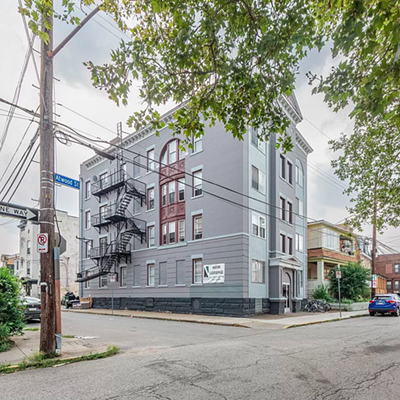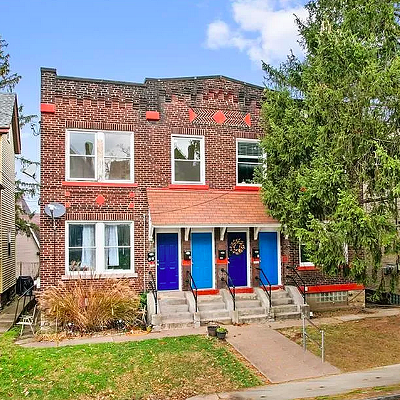In the end, the debate over whether to close Schenley High School came to this: Superintendent Mark Roosevelt was accused of hatching a nefarious plot to ... to ... help students pay for college.
And that wasn't even the weird part.
The June 29 broadcast of KD/PG Sunday Edition -- yeah, I watch it sometimes, so what? -- came days after the school board voted to shut Schenley down because of concerns about asbestos. The show pitted school-board member Mark Brentley, who opposed the closing, against Jean Fink, who voted in favor of it.
Brentley suggested that the University of Pittsburgh or UPMC might be interested in Schenley, a handsome structure in the heart of Oakland. And last year, UPMC committed $100 million to the Pittsburgh Promise, a college-scholarship program for Pittsburgh students. "[I]s this a part of the Pittsburgh Promise?" Brentley asked. While admitting he had no proof, he asserted, "I think it is clearly pointing to that." -- And, perhaps, to a racist agenda on the part of Superintendent Mark Roosevelt: "Every initiative put together by Mark Roosevelt has been tampering with those successful programs where [black] students have been doing fairly decent," Brentley said.
But the weird part was what Fink had to say. "The mantra is, 'We're going too fast, let's slow down,'" she charged. "These kids will never be ninth graders again. If you don't move, and raise the achievement level ... they [won't] have another chance."
Things have gotten strange when Jean Fink is talking about academic performance.
For years, Fink was the scourge of administrators. She opposed then-superintendent John Thompson at every turn, and sought to open "neighborhood schools" the district couldn't afford. But since she didn't trust school officials' numbers, she and her board allies crafted a "housewives' budget" instead.
Residents were appalled. The district faced a financial crisis! Didn't she understand a building was just a building? Who was she to second-guess district professionals?
Similar questions arguably could be directed at some of Roosevelt's detractors. There were, of course, big differences between the Fink of yesteryear and Schenley backers today. Among the most important: The effect, if not the intent, of Fink's neighborhood schools was to increase racial segregation. Part of Schenley's appeal, by contrast, is that it is one of the city's most integrated schools.
Yet Schenley's students, while not separate, aren't performing equally. As a whole, the school's 11th graders outperform the district's average on statewide tests -- but that's due to its prestigious International Baccalaureate program. According to 2006 statistics, Schenley students who aren't in the IB program scored about half as well in reading-proficiency tests, and even worse in math. Non-IB students -- who are disproportionately African American -- also significantly lagged the district average.
You could argue about the significance of those numbers, but no one ever does. In all the talk about keeping the "Schenley family" intact, there's little mention of the divisions already within it. Instead, the focus is on the building's architectural merit, or on allegations of backroom dealing.
Much of the blame lies with Roosevelt himself. A zeal for reform is one thing, but since coming to Pittsburgh in 2005, Roosevelt has shifted schools around so much that he's reforming his own reforms. He's promised an ambitious high-school overhaul, but since a comprehensive plan has yet to be unveiled, people will naturally speculate about his real agenda.
So there are good reasons to be wary of Roosevelt's plan. But there's some magical thinking at work here, too -- and not the kind Schenley is supposed to inspire. Uncomfortable facts are either ignored or ascribed to Roosevelt's bad faith. Since cost estimates for removing the asbestos have fluctuated wildly between $50 million and $90 million, Brentley and others contend Roosevelt has inflated the price tag as dissent mounted -- even though $85 million estimates were published as far back as 2005. Others insist Schenley may not have asbestos at all.
Meanwhile, other politicians are crafting "housewives' budgets" of their own. City Councilor Bill Peduto floated a plan to finance Schenley's improvements, while a handful of councilors urged the district to delay a decision. If city officials wanted to help renovate Schenley, they could put their money where their mouths are -- by returning millions of dollars a year the city filched from school district coffers under a state-mandated 2004 bailout. But it's easier to offer advice and nonbinding resolutions.
Should we worry when Jean Fink backs the administration? Sure. But it's equally disconcerting to see some opponents acting like Jean Fink.














